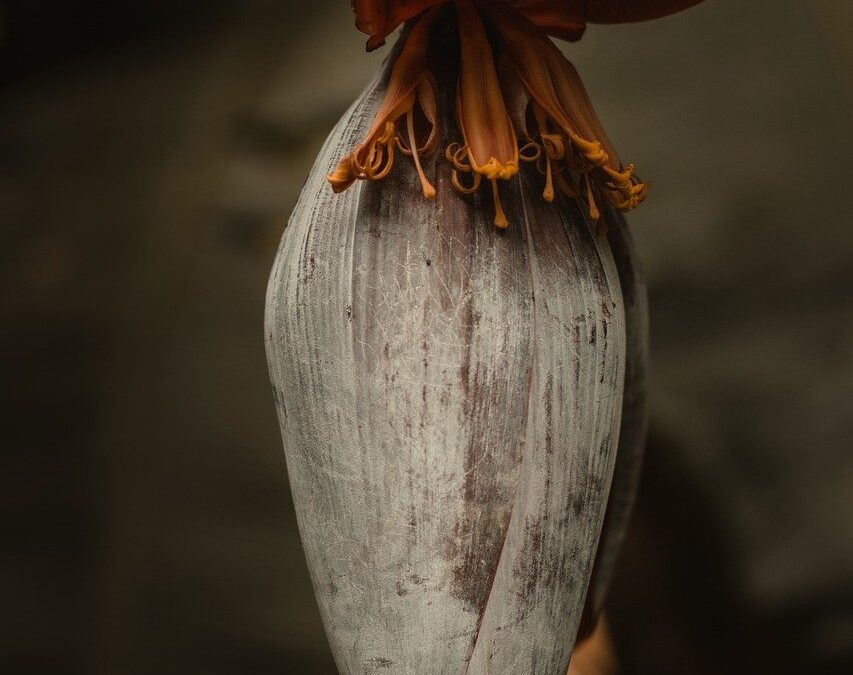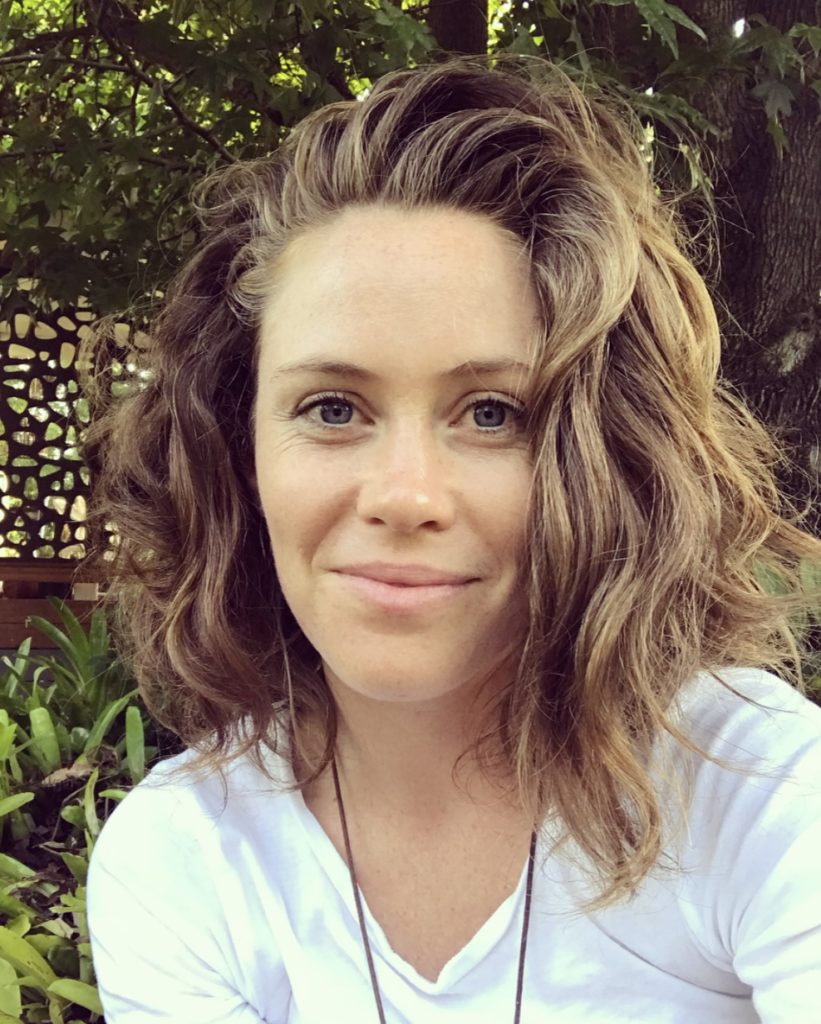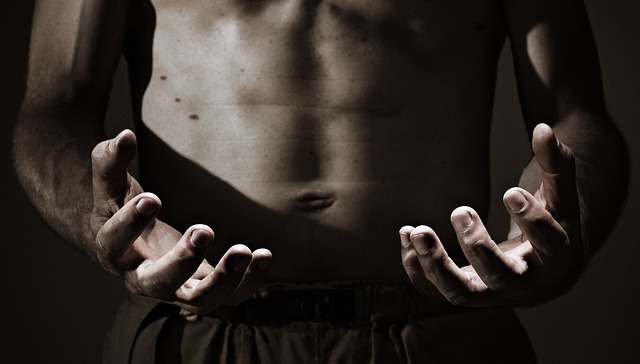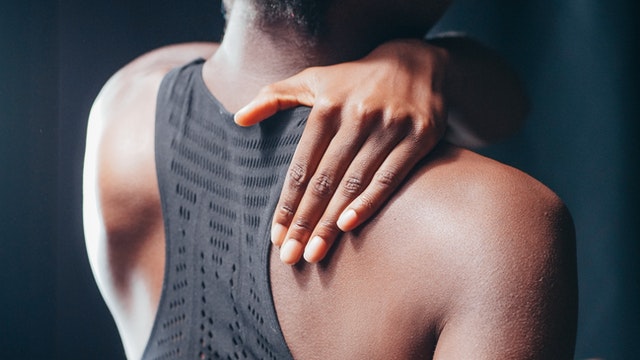
by Tanya Keam | Jan 31, 2024 | Acupuncture, chinese herbal medicine, Chinese medicine, Client information, Fertility, Gynaecological, Menstrual cycle, PCOS, Period pain, PMS, Polycystic Ovarian Syndrome, pregnancy, Self care, Sunshine coast
Polycystic Ovarian Syndrome
Polycystic ovary syndrome (PCOS) is a hormonal problem that happens during the reproductive years. If you have PCOS, you may not have periods very often or your cycle is rarely a monthly cycle. Or you may have periods that last many days (1).
PCOS is classed as a hormonal and metabolic health imbalance affecting approximately 1 in 10 women. The male hormones androgens are higher in women with PCOS, as well as problems with insulin. Insulin is a peptide hormone secreted by cells of the pancreas to help maintain normal blood glucose levels, regulating carbohydrate, lipid and protein metabolism and promoting cell division and growth through its mitogenic effects (2). When insulin becomes resistant, that’s when disharmony with weight and hormonal changes can occur in women, thus having an impact on their reproduction.
What are the symptoms of Polycystic Ovarian syndrome?
- Irregular or no periods
- Excessive hair growth on the face or body
- Hair loss
- Skin conditions such as acne or excessive skin tags
- Difficulty falling pregnant due to irregular ovulation
- Difficulty losing weight and/or weight around the waist
- Mood changes and/or specifically anxiety or depression
Possible causes for Polycystic Ovarian syndrome
Genetics may play a role in PCOS, with up to a third of women having a female relative with PCOS or similar without being diagnosed. However lifestyle, diet and environmental factors show to be contributing factors also.
It is important to note that females can experience irregular periods without any of the other above symptoms. This is classed as polcystic ovaries (PCO); when you have multiple “cysts” on the ovaries. They aren’t actually cysts, they’re eggs that haven’t developed properly. It might occur after hormonal conceptive use in the reproductive years that confuse the body, and/or lifestyle or environmental factors. Insulin and weight are usually not of concern with PCO. The hypothalamic-pituitary-adrenal axis (HPA), describes the interaction between the hypothalamus, pituitary gland, and adrenal glands. The hypothalamus and pituitary gland are located just above the brainstem, while the adrenal glands are found on top of the kidneys (3). The HPA can receive the wrong signals resulting in eggs that haven’t developed properly (cysts), thus causing lack of ovulation and periods (4). Distinguishing between PCOS and PCO is important.
What can help Polycystic Ovarian syndrome?
PCOS treatment is mainly focussed on symptom management by reducing additional metabolic risk factors like heart disease and diabetes. Other ways can include:
- Regular exercise – managing potential weight gain and maintaining a healthy cardiovascular system
- Dietary changes – as PCOS has a somewhat inflammatory component, reducing inflammation via appropriate foods (a Mediterranean diet). Moderating carbohydrate intake in a similar way to balancing diabetes (insulin imbalances). Minimising exposure to foods that contain hormones that have been purposefully added to increase production – animal products usually.
- Acupuncture – can help with pain associated with PCOS and help regulate the nervous system which in turn has an impact on hormones
- Managing stress – stress impacts any health condition. Learning to manage life’s stressors is vital for general health and well being. Low stress also equals low cortisol release (the stress hormone). High cortisol leads to weight gain thus impacting the metabolic pathways exasperating PCOS
- Reducing exposure to hormone disrupting chemicals – did you know that IVF clinics do not allow perfumes/deodorants into their clinics as research has found that they can disrupt the endocrine system. In the armpit for example, products get directly absorbed into the lymphatic system. Going as natural as possible with skin care, body products and cleaning products will surely benefit
What does research say about Chinese medicine and Acupuncture for PCOS?
A study done in 2018 on the prevalence of diabetes mellitus, obesity, lipid metabolism disorders, and major depression was recorded as common symptoms for PCOS enrolled patients. Multiple common Chinese herbal formulas were included in the study based on the patients symptoms such as period pain, abdominal pain, constipation and uterine contractions.
The present findings revealed that patients with PCOS had a relatively high tendency to consult TCM practitioners (89.22%) due to Western medicine not having a treatment protocol directly. Among these prescription chinese herbal medicines (CHM) trialled showed hepatoprotective effects, as well as beneficial effects in treatment of hyperglycemia, insulin intolerance, dyslipidemia, and anovulation. These findings indicate that Chinese herbal medicine might serve as a potentially effective therapeutic option for PCOS (5).
Another study showed that following transfer of fresh or frozen-thawed embryos available from the same stimulated IVF cycle, 47 patients got clinical pregnant and 43 of them achieved live birth with the use of CHM. Among which, 32 patients achieved term delivery in the CHM group. In the non-CHM group, 27 patients got clinical pregnant and 22 of them achieved live birth, among which, 14 patients achieved term delivery (6).
The NHMRC Centre for Research Excellence in PCOS undertaken at the Sydney Western University, has already completed a systematic review, and a qualitative study on acupuncture for weight loss in PCOS, with feasibility testing now in sight for a clinical trial. The clinical trial will explore the role of traditional acupuncture as an adjunct to lifestyle interventions for weight loss in PCOS. “Weight loss improves many of the features of PCOS and can reduce the burden of chronic disease from diabetes and heart disease.” (7).
 Tanya Keam is an integrative Chinese medicine Doctor and registered Acupuncturist in Nambour in the beautiful Sunshine Coast hinterland in Queensland, Australia. If you’re experiencing the above symptoms or interested in Traditional Chinese Medicine and Acupuncture treatment specifically for Polycystic Ovarian Syndrome or Polycystic ovaries, please reach out to see if Acupuncture, herbal medicine and lifestyle guidance might support your gynaecological health.
Tanya Keam is an integrative Chinese medicine Doctor and registered Acupuncturist in Nambour in the beautiful Sunshine Coast hinterland in Queensland, Australia. If you’re experiencing the above symptoms or interested in Traditional Chinese Medicine and Acupuncture treatment specifically for Polycystic Ovarian Syndrome or Polycystic ovaries, please reach out to see if Acupuncture, herbal medicine and lifestyle guidance might support your gynaecological health.
You can see Tanya’s training here, call us here, or book online here.
References:
- https://www.mayoclinic.org/diseases-conditions/pcos/symptoms-causes/syc-20353439
- Wilcox. G. 2005. Insulin and Insulin resistance. National Library of medicine. https://www.ncbi.nlm.nih.gov/pmc/articles/PMC1204764/
- Chrousos GP. Stress and disorders of the stress system. Nat Rev Endocrinol. 2009 Jul;5(7):374-81. doi: 10.1038/nrendo.2009.106. Epub 2009 Jun 2. PMID: 19488073. https://neuroscientificallychallenged.com/posts/what-is-the-hpa-axis
- Chrousos GP. Stress and disorders of the stress system. Nat Rev Endocrinol. 2009 Jul;5(7):374-81. doi: 10.1038/nrendo.2009.106. Epub 2009 Jun 2. PMID: 19488073. https://neuroscientificallychallenged.com/posts/what-is-the-hpa-axis
- Liao, Wan-ting, Chiang. Jen-huai, Li Chia-lung, Lee Ling-Tsung, Su Cheng-chiung, Yen Hung-rong. 2018 J Clin Med. 2018 Jul; 7(7): 179. Journal of Clinical Medicine. Investigation on the Use of Traditional Chinese Medicine for Polycystic Ovary Syndrome in a Nationwide Prescription Database in Taiwan. https://www.ncbi.nlm.nih.gov/pmc/articles/PMC6069244/
- 6. P, Xiaoming. Gu, Yinger. Z Xian. W, Fangfang. S, Biwei. C, Long. W, fangfang. Q, fan. Integrative Medicine research Volume 11, Issue 1, March 2022, 1007752022. Chinese herbal medicine (Bu-Shen-Tian-Jing Formula) for outcomes of IVF in Chinese patients with polycystic ovary syndrome: A retrospective cohort study. https://www.sciencedirect.com/science/article/pii/S2213422021000627
- NICM Health Research Institute: https://westernsydney.edu.au/nicmhri/news/trial_to_explore_acupuncture_for_weight_loss_in_pcos

by Tanya Keam | Jan 10, 2024 | Acupuncture, Bloating, Chinese medicine, Client information, Emotions, fertility acupuncture, Gynaecological, Herbal remedies, Hormones, Menstrual cycle, Nambour, Period pain, PMS, Premenstrual Dysmorphic Disorder, Self care, Stress, Sunshine coast, Womens health
Chinese Medicine for Premenstrual Dysmorphic Disorder
Premenstrual Dysmorphic Disorder (PMDD) is a health concern that is similar to premenstrual syndrome (PMS) but is more serious. PMDD causes severe moodiness such as feeling irritable, crying a lot, depression, anger outbursts or anxiety in the week or two before the period starts. Other symptoms may include fatigue, weight gain, restless sleep, breast tenderness, digestion changes, trouble focussing, binge eating, feeling out of control and suicidal thoughts.
About 80% of women report at least mild premenstrual symptoms, 20%–50% report moderate-to-severe premenstrual symptoms, and about 5% report severe symptoms for several days with impairment of functioning. The 5% of women with the severest premenstrual symptoms and impairment of social and role functioning often meet the diagnostic criteria for premenstrual dysphoric disorder (PMDD) (1).
Risk factors may include:
- A family history of PMS or PMDD
- Women with a personal or family history of depression, postpartum depression, or other mood disorders
- Cigarette smoking (2)
How is PMDD diagnosed?
Premenstrual Dysmorphic Disorder (PMDD) is typically diagnosed by a healthcare provider after performing a physical examination and speaking to the patient about signs and symptoms. Researchers do not know for sure what causes PMDD or PMS, however hormonal changes in the menstrual cycle each month may play a role due to the brain chemical called serotonin levels changing throughout the cycle.
Healthcare providers may also ask patients to keep track of symptoms over several menstrual cycles, or order tests to check certain things related to hormones.
What are the treatment options for PMDD?
Treatment for Premenstrual Dysmorphic Disorder (PMDD) typically involves a combination of lifestyle changes and medications. Medications used to treat PMDD include antidepressants, hormonal control pills/medications, or non-steroidal anti-inflammatory drugs. In some instances, gonadotropin releasing hormones may be given.
Natural approaches for Premenstrual Dysmorphic Disorder (PMDD) can include regular exercise and nutritional changes individualised to the patient to support serotonin, and lifestyle modifications such as sticking to a daily routine, practicing meditation and taking care of oneself, recognising emotions and managing stressful situations. Other natural remedies that have been used to treat symptoms associated with PMDD include acupuncture and herbal medicine.. Traditional Chinese medicinal herbs can be given to patients the week or two before their period is due to ease symptoms. This can be a good alternative to pharmaceuticals.
It’s important to remember than it’s normal for women and young girls to experience fluctuations in energy levels, mood or food cravings in different stages of their menstrual cycle. Iron levels for example drop once the uterus lining has shed, so it’s normal to feel lower energy before or on your period. Women live on a 28 day cycle and can sometimes even sync with the moon cycles. Whereas, men live on a 24 hour one! However when signs and symptoms are really affecting your quality of life, then it’s important to seek help.
 Tanya Keam is an integrative Chinese medicine Doctor and registered Acupuncturist in Nambour in the beautiful Sunshine Coast hinterland in Queensland, Australia. If you’re experiencing the above symptoms or interested in Chinese Medicine Premenstrual Dysmorphic Disorder treatment specifically, please reach out to see if Acupuncture, herbal medicine and lifestyle guidance might support you to feel better.
Tanya Keam is an integrative Chinese medicine Doctor and registered Acupuncturist in Nambour in the beautiful Sunshine Coast hinterland in Queensland, Australia. If you’re experiencing the above symptoms or interested in Chinese Medicine Premenstrual Dysmorphic Disorder treatment specifically, please reach out to see if Acupuncture, herbal medicine and lifestyle guidance might support you to feel better.
You can see Tanya’s training here, call us here, or book online here.
References:
- Pearlstein, T., Steiner, M. (2008). Premenstrual dysphoric disorder: burden of illness and treatment update. Journal of Psychiatry & Neuroscience; 33(4): 291–301.
- https://www.hopkinsmedicine.org/health/conditions-and-diseases/premenstrual-dysphoric-disorder-pmdd

by Tanya Keam | Jan 24, 2023 | Acupuncture, Adrenal Fatigue, Anxiety, Authentic self, Chinese medicine, Chronic fatigue, Daily Rituals, Exercise, Mental health, Nambour, Self care, Sleep, Spiritual growth, Stress, Sunshine coast
What is self care ?
You might think having a relaxing bath and exercising is self care, and it is. However self care for everyone is going to be different and there are many ways to take care our wellbeing.
Checking in with yourself to see how you are is a good place to start. Sitting down for 15 minutes, closing your eyes and focussing on your breathing will tell you if you’re conscious of your breathing or not. People often find it difficult to meditate so if this is you, just sitting or lying down and focussing on your breathing is a start. Inhale for 4 counts and exhale for 4 counts continually for 15 minutes. If this is difficult then start with 5 minutes. Does the inhalation feel the same as the exhalation? Or does one feel more restricted than the other?
Once here, ask yourself how you are.
What emotions are present right now? Have I been sleeping well lately? What has been upsetting me lately? Do I feel well in my body – my energy stamina, my digestion, do I have pain in my body? How have the last 3 months been going? The past year? How do I take care of my well being? Do I take care of myself at all? Do I reach for things to change how I feel? A glass of wine, substances? How do I handle stress?
As a Eastern medicine practitioner in the health industry I often ask people how they take care of themselves day to day and also when they aren’t feeling good.
Self care ideas you maybe haven’t thought of:
- Saying no to social events because you’re not up to it
- Calling friends to be around people you love for company
- Doing food prep so you have healthy meals through the week
- Asking a friend to help you with something
- Getting help with kids so you can have a few hours to yourself
- Seeing a therapist to talk about things
- Exercising every day to get the feel good chemicals going in your body
- Reducing your work or study load
- Taking time off work
- Resting at home – literally putting your feet up with a book
- Sleep
- Stepping away from unhealthy relationships or jobs
- Allowing yourself to cry and feel
- Magnesium bath
- Time in nature
- Taking a holiday
- Being conscious of your behaviours when you are stressed
- Prayer
- Meditation
- Doing your favourite hobbies
- Conscious breathing
- Staying off social media if peoples highlight reels are triggering
- Journaling
- Trying a new activity
- Asking for help
- Quiet days at home
- Going for a health treatment such as acupuncture to balance your nervous system
- Reducing or completely removing alcohol and substances
- Slowing your life down, simplifying things
Life can get on top of us sometimes. Checking in with yourself every day by practicing self care is loving yourself. Your self care isn’t going to look the same as someone else’s self care but know there are many ways to nourish your body, mind and spirit. Give yourself time and space to move through things that are happening in your life.
 Hi, I’m Tanya Keam, an AHPRA registered Acupuncturist and natural health practitioner in Nambour in the Sunshine Coast hinterland, Queensland Australia. I practice Chinese medicine and Acupuncture because its safe, logical, relevant and has effectively shown methods of natural wellness for thousands of years (read more about my training here). Life doesn’t need to be complicated and nor does the treatment approaches to get people feeling vibrant and well. I’ve seen people gain a lot from treatments, much more than just alleviating symptoms. It’s exciting to connect with people and share deep wisdom from the classics of ancient and traditional medicine, with modern protocols for todays mind-body living. If you need some guidance in practicing better self care get in touch or book online today.
Hi, I’m Tanya Keam, an AHPRA registered Acupuncturist and natural health practitioner in Nambour in the Sunshine Coast hinterland, Queensland Australia. I practice Chinese medicine and Acupuncture because its safe, logical, relevant and has effectively shown methods of natural wellness for thousands of years (read more about my training here). Life doesn’t need to be complicated and nor does the treatment approaches to get people feeling vibrant and well. I’ve seen people gain a lot from treatments, much more than just alleviating symptoms. It’s exciting to connect with people and share deep wisdom from the classics of ancient and traditional medicine, with modern protocols for todays mind-body living. If you need some guidance in practicing better self care get in touch or book online today.

by Tanya Keam | Aug 30, 2022 | Acupuncture, Autoimmune, Chinese medicine, Client information, Exercise, Immune Support, Immune system, Inflammation, Joint pain, Nambour, Nutrition, Pain, Stress, Sunshine coast
Acupuncture for Inflammation is showing positive results in research. Inflammation refers to your body’s process of fighting against things that harm it, like infections, injuries, and toxins, in an attempt to heal itself. When something damages the cells, your body releases chemicals that trigger a response from your immune system.
Chronic inflammation can cause autoimmune disorders, such as Lupus or Chron’s, where your body attacks healthy tissue. Exposure to toxins, like pollution or industrial chemicals. Untreated acute inflammation, such as from an infection or injury.
Other factors that contribute significantly to inflammation is poor diet and stress.
What about stress?
- Working too much, over doing it
- Poor diet
- Lack of exercise
- Environmental factors
- Emotional distress
- Not taking care of yourself
- Injury, trauma – sometimes inflammation is a good thing when there’s been trauma to the body. However its important to quickly reduce the inflammation so the body can heal and get well
Try to avoid these “foods” when grocery shopping:
- Refined carbohydrates, such as white bread and pastries
- Hot chips and other fried foods (often fried in canola oil which is GMO)
- Margarine
- Soft drinks and other sugar-sweetened beverages (including some alcoholic drinks)
- Red meat and processed meat (hot dogs, sausages)
- Corn syrup
- Packaged foods with ingredient and numbers on the ingredients list you don’t understand
- Drive-through foods
Other foods that may contribute to inflammation in the body for some people may include:
- Gluten (proteins trigger the immune system to jump into action, causing inflammation). This inflammation can affect the body’s organs and soft tissue. However sometimes, its the pesticides, herbicides or other chemicals used in the processing of certain grains which can cause gluten sensitivity.
- Dairy
- Soy
- Corn
- White sugar
An anti-inflammatory diet is rich in good oils, fats, omega’s and antioxidants…
- Olive oil, flaxseed oil
- Green leafy vegetables (such as spinach, kale, and collards)
- Nuts
- Tumeric, ginger
- Fatty fish (like salmon, mackerel, tuna and sardines)
- Fruits (such as avocado, strawberries, blueberries, cherries, goji berries, pineapple, papaya)
- Raw unprocessed honey
- Coconut
- Tomato
- Bone broth
- Ghee
- A rainbow of fruits and vegetables
Try to eat as organic and local as possible. In season fruits and vegetables are also important. Certified organic can be expensive so if you cant source it, make sure you thoroughly wash your food. Or better yet start a little vegie garden and grow what you can at home.
How can Chinese medicines and Acupuncture for Inflammation help?
Acupuncture stimulates your body to help your own body to make its own medicine, like giving your internal healing response a 10-20% boost. The pins spark your resources; what nature gave you and continues to give you.
Acupuncture and the other branches of Chinese medicine (nutrition, herbs, massage, heat therapy and exercise) restore homeostasis and keep the body functioning at an optimal level. When the body is functioning at an optimal level, we’re far less likely to get sick, and far more likely to recover quickly when we do get sick, inflammatory conditions included. Read more here about Traditional Chinese Medicine as a health modality here:
Autoimmune conditions are a chronic condition so healing is a longer process, the same way it took a long time for the autoimmune markers to show up in the first place. Never the less, we can balance your immune system with acupuncture and herbal medicine, dramatically help with nutrition specific for you as an individual and guide you to manage lifestyle factors to reduce autoimmune markers or better manage the symptoms.
If you think you may have inflammation happening in your body or have been diagnosed with an autoimmune condition, please contact us today to discuss how we can help you at our Acupuncture and Chinese Medicine clinic on the Sunshine Coast. Healing is possible. Being pain free, managing pain, feeling energetic, relaxing the stress response in the body and feeling an overall wellness is possible.
 Hi, I’m Tanya Keam, an AHPRA registered Acupuncturist and health practitioner in Nambour in the Sunshine Coast hinterland, Queensland Australia. I practice Chinese medicine because its safe, logical, relevant and has effectively shown methods of natural wellness for thousands of years (read more about my training here). Life doesn’t need to be complicated and nor does the treatment approaches to get people feeling vibrant and well. I’ve seen people gain a lot from treatments, much more than just alleviating symptoms. It’s exciting to connect with people and share deep wisdom from the classics of ancient and traditional medicine, with modern protocols for todays mind-body living. See you in the clinic !
Hi, I’m Tanya Keam, an AHPRA registered Acupuncturist and health practitioner in Nambour in the Sunshine Coast hinterland, Queensland Australia. I practice Chinese medicine because its safe, logical, relevant and has effectively shown methods of natural wellness for thousands of years (read more about my training here). Life doesn’t need to be complicated and nor does the treatment approaches to get people feeling vibrant and well. I’ve seen people gain a lot from treatments, much more than just alleviating symptoms. It’s exciting to connect with people and share deep wisdom from the classics of ancient and traditional medicine, with modern protocols for todays mind-body living. See you in the clinic !
Links:
https://news.harvard.edu/gazette/story/2021/11/researchers-pinpoint-how-acupuncture-targets-inflammation/
https://pubmed.ncbi.nlm.nih.gov/24562381/
https://www.ncbi.nlm.nih.gov/pmc/articles/PMC1781596/

by Tanya Keam | Jan 17, 2022 | Acupuncture, Chinese medicine, Client information, Frozen shoulder, Health practitioner, Muscle pain, Nambour, Shoulder pain, Sunshine coast, Uncategorized
Frozen shoulder Acupuncture and other treatment options
The shoulder can rotate in a full circle, unlike the elbow that only bends one way. Frozen shoulder is much like the name suggests. There is no movement or very limited movement in the shoulder capsule joint or the whole shoulder itself, it is frozen stuck. It can be quite painful as any slight attempt to move the shoulder joint or raise the arm, results in sever pain and restriction. If left untreated, it can lead a to a chronic condition. Below is further information of what causes it and frozen shoulder acupuncture treatment and other therapy options.
What is Frozen shoulder
Adhesive capsulitis (any word with the word ‘itis’ means inflammation) which is a shoulder condition that results in restriction and pain on range of motion. The muscles and tissues in your shoulder joint over time can become thicker and tighter leading to damage and scar tissue forming. As a result, the shoulder becomes restricted and extremely painful to move, to lay on and to even sleep.
What are the symptoms and stages of a Frozen shoulder
- The beginning stage is where the pain begins. We naturally try to avoid pain by reducing the arm movement and range of motion of the shoulder joint to stop the pain. Further inflammation and swelling can also result in reducing the amount of whole arm movement. Pain can feel dull, achy, sharp and worse on movement.
- The second stage is when the shoulder becomes frozen. Pain may even reduce however the joint becomes more difficult to move and is now stiff. For some people, the pain worsens at night, sometimes disrupting sleep.
- The last stage is when inflammation and swelling reduce in the shoulder capsule and the surrounding muscles, tendons and ligaments have more room to move more freely. Blood flow is also moving better so the range of motion beings to improve.
What can cause a Frozen shoulder
The bones, ligaments and tendons that make up your shoulder joint are encased in a capsule of connective tissue. Frozen shoulder occurs when this capsule thickens and tightens around the shoulder joint, restricting its movement (1).
It is sometimes not clear why this swelling occurs but can be linked to excessive use of the shoulder such as hyper-extending the joint, tearing of the tendons and muscles that support the shoulder structure or those who recently had to immobilise the shoulder for a long period, such as having it in a sling after surgery or an injury.
Frozen shoulder can be more common in:
- People 40 and older, particularly women
- People who’ve had prolonged immobility or reduced mobility of the shoulder
- People suffering from Diabetes, Parkinson’s disease, thyroid imbalance or cardiovascular disease
- People recovering from a stroke
What are some ways to help a frozen shoulder recover
- Decreasing pain first so a person can at least sleep properly to rest and recoup the body. Conventional medicine will offer use of anti-inflammatories and general pain relievers that offer temporary solutions. Steroid injections directly into the joint may be offered in some cases to attempt to reduce inflammation locally in the shoulder. There are some risks associated with traditional pain management.
- Increasing range of movement needs professional guidance so that the shoulder is not made worse or to push to the point of pain. If done incorrectly, pain and inflammation will cause further problems and restriction of movement – it may seize up. Exercises can be helpful to increase this range of movement.
- Acupuncture has been found in numerous research trials to have a strong impact and positive effect in pain reduction and improvement in shoulder mobility for frozen shoulder (2). Immediate and long lasting effects in the reduction of pain (3) is ideal as we want the shoulder to recover completely, not just have short term symptomatic relief that a pharmaceutical might provide.
- Mobilising the joint manually and massage therapy can help to loosen the tight muscles which improves movement and reduces pain. it is extremely important that this therapy is done gently so that too much pressure doest aggravate the condition.
- Surgery is usually considered as the last possible option after the above approaches have been applied, but may sometimes be necessary when the shoulder has damage to the muscle or tendons. Scans can be helpful to determine if surgery is even an option.
if you’re experiencing Frozen shoulder or other painful conditions, get in touch today to see if Acupuncture and other therapies used within our clinic may be of help to you. Contact Us or Book Online.
 Hi, I’m Tanya Keam,
Hi, I’m Tanya Keam,
an AHPRA registered Acupuncturist, bodyworker and doctor of Chinese medicine in Nambour in the Sunshine Coast hinterland, Queensland Australia. I practice Chinese and natural medicine because its safe, logical, relevant and has effectively shown methods of natural wellness for thousands of years (read more about my training here). Life doesn’t need to be complicated and nor does the treatment approaches to get people feeling vibrant and well. I’ve seen people gain a lot from treatments, much more than just alleviating symptoms. It’s exciting to connect with people and share deep wisdom from the classics of ancient and traditional medicine, with modern protocols for todays mind-body living. See you in the clinic !
References
- The mayo clinic: symptoms and causes: https://www.mayoclinic.org/diseases-conditions/frozen-shoulder/symptoms-causes/syc-20372684
- The Effectiveness of Acupuncture in the Treatment of Frozen Shoulder: A Systematic Review and Meta-Analysis, September 2020, Eyal Ben-Arie, Pei-Yu Kao, Wen-Chao Ho, Yu-Chen Lee, Evidence-based Complementary and Alternative Medicine2020(3):1-14.
- Immediate Pain Relief in Adhesive Capsulitis by Acupuncture: A Randomized Controlled Double-Blinded Study, Sven Schröder, MD, Dr. med. (PhD), Gesa Meyer-Hamme, MD, Thomas Friedemann, PhD, Sebastian Kirch, cand. med., Michael Hauck, MD, Dr. med. (PhD), Rosemarie Plaetke, PhD, Sunja Friedrichs, cand. med., Amit Gulati, PhD, Daniel Briem, MD, Dr. med. (PhD), Pain Medicine, Volume 18, Issue 11, November 2017.

 Tanya Keam is an integrative Chinese medicine Doctor and registered Acupuncturist in Nambour in the beautiful Sunshine Coast hinterland in Queensland, Australia. If you’re experiencing the above symptoms or interested in Traditional Chinese Medicine and Acupuncture treatment specifically for Polycystic Ovarian Syndrome or Polycystic ovaries, please reach out to see if Acupuncture, herbal medicine and lifestyle guidance might support your gynaecological health.
Tanya Keam is an integrative Chinese medicine Doctor and registered Acupuncturist in Nambour in the beautiful Sunshine Coast hinterland in Queensland, Australia. If you’re experiencing the above symptoms or interested in Traditional Chinese Medicine and Acupuncture treatment specifically for Polycystic Ovarian Syndrome or Polycystic ovaries, please reach out to see if Acupuncture, herbal medicine and lifestyle guidance might support your gynaecological health. 



